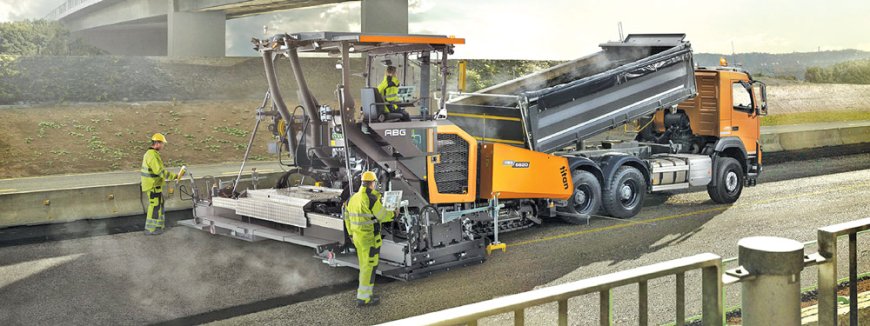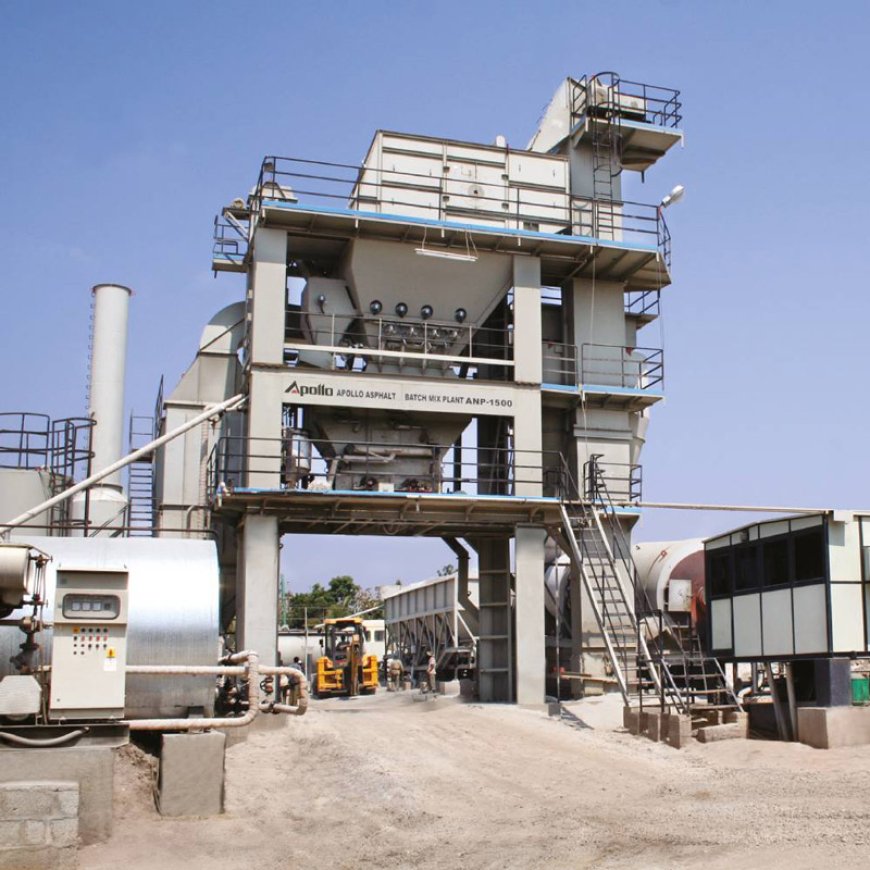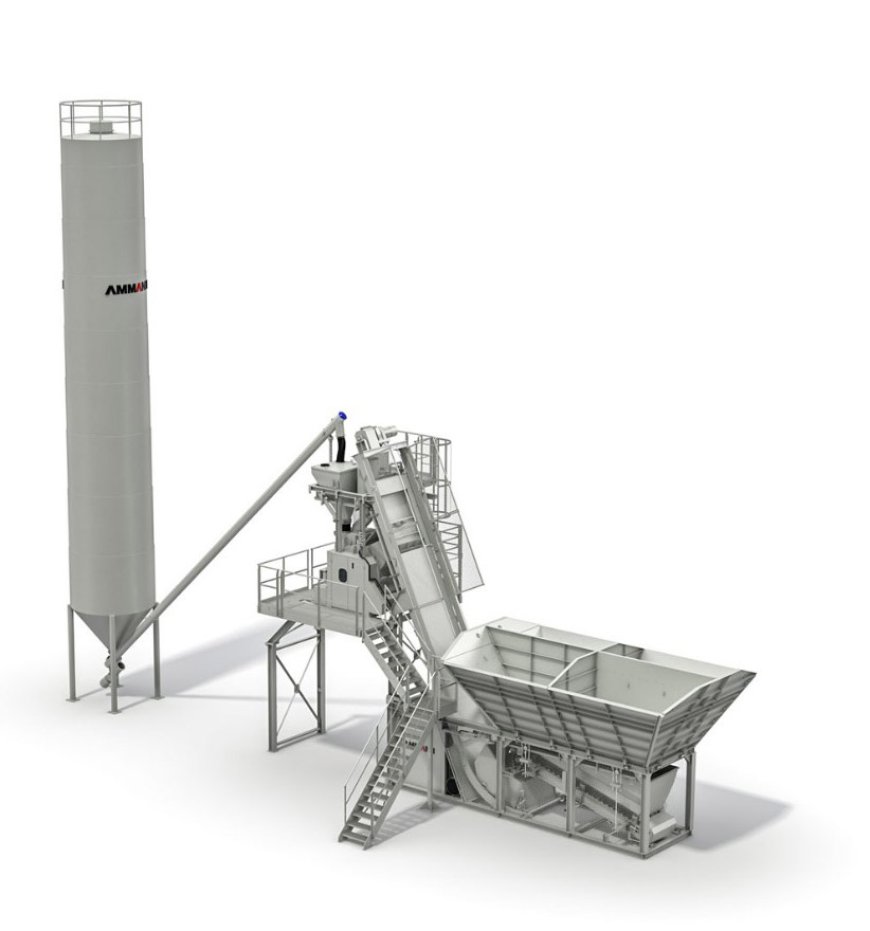Technological advancements have been pivotal, with innovations leading to more efficient, eco-friendly, and automated machinery.

Dheeraj Panda, Managing Director, Ammann India
How do you perceive the growth of the asphalt plant / pavers market in the past five years? What are the key factors driving this growth?
Over the past five years, the asphalt plant and paver market has seen substantial growth driven by several key factors. Global infrastructure development, particularly in emerging economies, has spurred demand as urbanization and government investments in road construction have increased.
Technological advancements have been pivotal, with innovations leading to more efficient, eco-friendly, and automated machinery. Modern equipment now offers digital controls, precise temperature management, and enhanced mixing processes, boosting both productivity and quality. The industry’s focus on sustainability has also driven the adoption of equipment that supports recycling and sustainable materials, aligning with Ammann’s green technology initiatives.
Stricter environmental regulations have further fuelled demand for advanced, compliant asphalt plants, underscoring the importance of ongoing innovation. The post-pandemic economic recovery has revitalized construction activities, reinforcing the need for modern asphalt paving solutions.
There has been a growing demand for versatile and customizable equipment to meet diverse project needs, from large-scale construction to smaller maintenance tasks. Ammann’s ability to deliver tailored solutions has strengthened its market position.

What are the current challenges faced by manufacturers in this sector? Conversely, what opportunities do you see on the horizon?
The asphalt plant and pavers sector faces a range of challenges. Increasingly stringent environmental regulations demand continuous innovation to ensure compliance with emissions and energy efficiency standards. Additionally, global supply chain disruptions have caused material shortages and cost fluctuations, impacting production and logistics.
Technological integration is another challenge, as rapid advancements require significant investment to incorporate automation and digital controls into our equipment. Attracting and retaining skilled professionals in this competitive job market is a concern, requiring ongoing investment in training and development.
Despite these challenges, there are substantial opportunities. The growing focus on sustainability is driving demand for eco-friendly technologies, such as warm mix asphalt and recycled materials. Embracing digitalization and automation can enhance efficiency and reduce costs, positioning us as leaders in technological innovation.

How is the industry addressing sustainability concerns, particularly in reducing emissions and energy consumption?
The asphalt plant and paver industry is increasingly focusing on sustainability, and Ammann is leading this shift with a commitment to reducing emissions and energy consumption.
Reducing Emissions: Ammann uses advanced filtration systems, high-efficiency baghouses, and catalytic converters to cut particulate matter and nitrogen oxides. Our warm mix asphalt (WMA) technology lowers production temperatures, reducing fuel consumption and emissions.
Renewable Energy: We explore biofuels and other renewable sources to reduce greenhouse gas emissions and dependence on fossil fuels, meeting stringent regulations from the EU and U.S. EPA.
What are the latest innovations in asphalt plant technology that you have introduced? How do these innovations improve efficiency and quality?
I’m excited to highlight our latest innovations in asphalt plant technology, which underscore our commitment to efficiency, quality, and sustainability. We’ve introduced advanced control systems that utilize AI and machine learning to optimize the asphalt production process in real-time.
This ensures precise, consistent output while reducing material waste and minimizing human error. Our new systems enhance product quality and operational efficiency, setting a new standard in the industry.
In our pursuit of sustainability, we’ve developed technologies that allow production of eco-friendly asphalt mixes. Our plants now support up to 60% percentage of recycled materials and can produce warm-mix asphalt at lower temperatures, reducing energy consumption and carbon emissions. This innovation aligns with our clients’ sustainability goals while maintaining high-quality standards.
Energy-efficient burners are another key advancement, reducing fuel consumption without sacrificing performance. These burners are versatile, capable of operating on various fuels, including alternative energy sources like bio diesel, helping to lower operational costs and environmental impact.
Our modular plant designs offer unparalleled flexibility, allowing for quick assembly, disassembly, and reconfiguration to meet diverse project needs. This modular approach reduces setup time and costs, enabling rapid deployment and adaptability to changing project requirements.

How have advancements in materials and design improved the maintenance and durability of asphalt plants / pavers?
Our focus is on enhancing the longevity and reliability of our asphalt plants and pavers through advanced materials and innovative design.
Advanced Materials: We use high-strength alloys and wear-resistant steel in our equipment, significantly improving durability and reducing maintenance frequency. These materials extend the lifespan of our machinery and lower operating costs. Additionally, we incorporate advanced composites into critical paver components. These materials offer a superior combination of strength and flexibility, which helps absorb stress while reducing component weight. This not only improves fuel efficiency but also makes handling easier.
Innovative Design: Our modular design approach facilitates quick and efficient replacement of parts, minimizing downtime, which is crucial in remote locations. We’ve optimized equipment layouts for easier access to critical components, making routine maintenance tasks like filter changes and inspections more straightforward. This design enhancement increases uptime and extends equipment lifespan. Precision-engineered components further reduce mechanical stress, leading to smoother operation and fewer repairs.
Durability and Sustainability: Our equipment is engineered to withstand extreme environmental conditions such as temperature fluctuations, moisture, and corrosion. Enhanced sealing systems and protective coatings ensure reliable performance over time. By extending the lifespan of our equipment and reducing maintenance needs, we contribute to more sustainable construction practices. Our pavers’ improved efficiency, achieved through weight reduction and optimized design, results in lower fuel consumption and reduced emissions.
All equipment are designed to meet the evolving demands of the construction industry to improve efficiency and efficacy while promoting more sustainable practices.
How do your products ensure compliance with the latest environmental regulations?
Ammann’s products are meticulously engineered to ensure full compliance with
the latest environmental regulations. Our commitment to sustainability is evident in the advanced technologies we integrate into our asphalt plants and pavers, which are designed to minimize environmental impact while maximizing efficiency.
Our equipment is equipped with state-of-the-art emissions control systems that significantly reduce the release of harmful pollutants. These systems are in line with the strictest international standards, ensuring that our plants operate well within the regulatory limits for air quality. For example, our asphalt plants feature highly efficient burners and baghouse filters that capture particulate matter, reducing dust emissions to a minimum, often lesser than local emission standards.
We prioritize energy efficiency across our product lines. By utilizing innovative foam bitumen technology which helps in optimizing fuel consumption, our equipment not only lowers operational costs but also reduces greenhouse gas emissions. This focus on energy efficiency is crucial in meeting stringent environmental standards, particularly those aimed at reducing carbon footprints in industrial processes.








